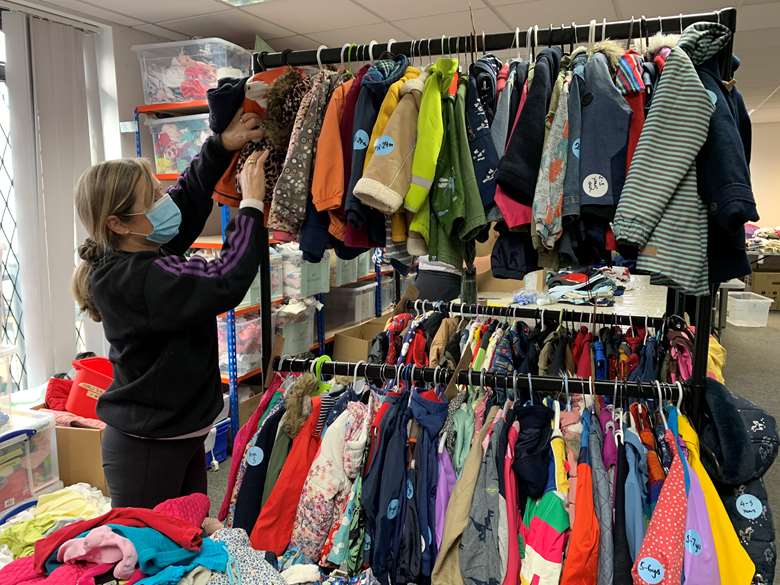Over a million children under five living in poverty - report
Nicole Weinstein
Thursday, February 11, 2021
A third of children aged under five are living in poverty, a new report by the baby bank charity Little Village and Joseph Rowntree Foundation has found.

Out of the UK’s 4.2million babies and children under five, 1.3million are living in poverty and two in five of these families have seen earnings fall because of the pandemic.
London-based Little Village is like a foodbank, but for clothes, toys and equipment for babies and children up to the age of five. The research was commissioned to mark the fifth anniversary of the charity, which has supported more than 11,000 children since 2016.
The report, which explores the rates, persistence and depth of poverty in families with young children, also found that a quarter of all babies and toddlers currently experiencing poverty are deep in poverty, living below 50 per cent of the poverty line. In real terms, this means that families are facing impossible choices between heating, food and rent.
London has the deepest poverty rates of anywhere in the UK for these families. On average, children in poverty in the capital live further below the poverty line than children elsewhere in the UK, with families with two young children living on £248 a week.
The North East and the West Midlands follow closely behind London, but the lowest poverty rates in the UK for children in these households are in Scotland, the South West and Northern Ireland.
In order to address the immediate impact of the Covid pandemic on young families living in poverty, Little Village fully supports the calls from the Joseph Rowntree Foundation to keep the £20 increase in Universal Credit.
Sophia Parker, founder of Little Village, said, ‘Our new research lays bare the unacceptable scale and depth of poverty in the UK for babies, toddlers and young children. The figures speak for themselves, and we see the real impact poverty has on families every week at Little Village - too many children are growing up hungry, cold and with clothes that don’t fit, lacking the essential items they need to thrive.
‘Every child has the right to a good childhood. The early years have a huge bearing on future health, education and employment outcomes. Even before the pandemic struck, millions of children were being left behind, and the last year has made matters so much worse. Child poverty is not inevitable: we have successfully tackled it in the past. This generation of children should remember us for how we got behind them, not for how they were let down. We believe the Government needs to take real action to address this national crisis now.’
The report states that Treasury plans to remove the temporary uplift in Universal Credit in April will reduce the incomes of 6.2 million families by £1,040 (£20 a week) and plunge half a million people, including 200,000 children, into poverty overnight.
Helen Barnard, director at JRF said, ‘It’s just not right that any child in our society is growing up in poverty. The fact that so many children are growing up with the constant pressure of poverty shows just how far we are from realising our society’s shared belief that every child should have the best start in life.
‘Organisations like Little Village do extraordinary work to support children and families, not just with the essentials they need but with the solidarity and kindness that we know means so much to people who’ve been pulled under.
‘But as a society we have a responsibility to make sure that people don’t end up in this situation in the first place, and the Government has a critical opportunity to do this now, by keeping the £20 increase in Universal Credit. Introducing this support was the right course of action, and a recognition that our social security system was not strong enough to keep people afloat prior to the pandemic.
Unemployment is projected to peak later this year and stay high for some time. Cutting the lifeline would be the worst possible decision for families on low incomes who face another extremely challenging year ahead.’
To promote good childhoods for all in the long term, the report recommends ensuring families enjoy decent wages and security of income, along with greater investment in the early years to ensure parents and young children receive proper support at this crucial stage in a child’s life.




